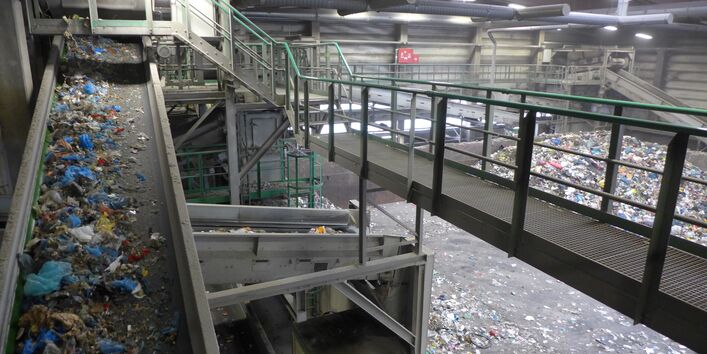Climate protection through Circular Economy in Germany and the EU
For the EU27 and Germany, the climate protection potential of the circular economy was examined for municipal waste, industrial & commercial, construction & demolition and food waste for 2017 and 2030 using the life cycle assessment method. The study shows the sector's GHG mitigation potential, including food waste prevention, in the context of the EU legal framework and the energy transition.
In two partial reports the Refoplan project to 'Determine the climate protection potential in the circular economy for Germany and the EU' aim to inform decision-makers and interested parties about the potential that circular economy has to reduce greenhouse gases in the context of the European legal framework for the years 2017 and 2030. Using the life cycle assessment methodology, the climate protection potential in the areas of municipal waste, industrial and commercial waste as well as construction and demolition waste was examined for Germany, the EU27 and two clusters of selected member states. The treatment and prevention of food waste was contemplated as a special balance area.
For the first time waste avoidance and preparation for reuse were included in the LCA method for waste management, based on available data. For municipal waste a special scenario was considered that includes home composting in the fulfilment of the recycling quota. For the calculation of the GHG emission potentials, the study applies an energy mix that reflects the defossilization of the energy systems. That is relevant, because in this case waste treatment processes cause fewer direct GHG emissions, but the avoided emissions resulting from replacing primary energy and raw materials are reduced as well. The results show how the energy transition affects the contribution of the circular economy to climate protection, how important it is to use existing potential in the waste sector and highlights the important contributions from of preventing food waste to GHG reduction.
Through consistent implementation of the EU legal framework, municipal waste management In the EU27 can increase its absolute net emission savings potential from -3.5 million tons CO2 equivalents in 2017 to approximately -30.0 million tons CO2 equivalents in 2030; thus, potentially deliver a relevant contribution to the GHG reduction. However, this falls short of the full potential that the EU27 could achieve, if the landfilling of unpretreated municipal waste, which is still permitted under EU law, would be stopped completely. The results for Germany show that in this regard its waste management is already well positioned, but that the GHG reduction potential will gradually decrease in the future due to the defossilization effects. For municipal waste the absolute net emissions savings potential of -12.6 million Mg CO2 equivalents in 2017 is reduced to 10.9 million Mg CO2 equivalents in 2030, despite considerable improvements and optimizations assumed.

